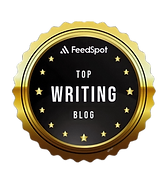How to Combat Mood Disorders With Food
- Isabella Boston

- Sep 18, 2024
- 4 min read
Updated: Jan 14
Foods That Help Combat Mood Disorders

The Cleveland Clinic defines a mood disorder as: “…a mental health condition that primarily affects your emotional state. It’s a disorder in which you experience long periods of extreme happiness, extreme sadness, or both. Certain mood disorders involve other persistent emotions, such as anger and irritability.” (Cleveland Clinic, Mood Disorders, 2022, para. 2).
Mood disorders can appear in various forms of mental illness, including different types of depression, such as dysthymia and postpartum depression; bipolar disorders that are characterized by mood swings ranging from depression to mania; and seasonal affective disorder (SAD), where a person can be sad and moody during the winter months.
Although there is no clear connection between mood disorders and diet, there is a lot of research showing the effects on the brain chemicals that control your mood. Below are some general guidelines and tips:
FOODS THAT HARM
Foods with additives, if allergic
FOODS TO LIMIT
Caffeine
Alcohol
Sugary foods
FOODS THAT HEAL
Turkey
Salmon
Tuna
Milk
Eggs
Pasta
Bread
Kale
Orange juice
Corn
Asparagus
Here is a breakdown of some of the foods to add to your diet and some of the things you can do to improve your mood:
Add More Carbs

Tryptophan is an amino acid that converts to serotonin, a neurotransmitter thought to influence mood, in the brain. It is found primarily in protein sources, such as turkey, milk, and eggs. It should be noted that tryptophan alone will not raise serotonin levels. Eating carbohydrate-rich foods allows tryptophan to enter the brain, which explains why consuming carbs is associated with a calming, relaxing effect. Some feel-good food choices include breads, pasta, grains, cereals, fruits, and juices.
Leafy Greens

Many people suffering from depression are deficient in folate. This vital mineral is found in green leafy vegetables like kale. Other sources include: lentils, orange juice, corn, asparagus, peas, nuts, and seeds.
Fish

You should try to eat fish three times a week or more. Studies have shown that people who ate fish less than once a week had a 31% higher chance of mild to moderate depression than people who ate fish more often.
Limit Caffeine

Caffeine is a stimulant found in coffee, tea, colas, and chocolate and is the best-known mood-altering dietary item. Although a cup of coffee can boost your mood and is a welcome eye-opener, too much caffeine can cause heart palpitations, anxiety, and sleeplessness.
Limit or Avoid Alcohol

The second most used mood-altering substance is alcohol, a depressant that slows down certain physiological processes. Alcohol can also interfere with sleep by causing irritability, anxiety, and depression.
Do Not Skip Meals

The types of food you eat, and when and how much you eat, can also affect your mood. It is beneficial to eat small amounts of food frequently throughout the day, allowing you to maintain more consistent blood-sugar levels and promote a better mood.
Limit Your Sugar

Eating foods high in sugar can reduce the production of BDNF, a protein critical for the formation of new memories, learning, and brain cell health. Foods made with refined sugar can impact brain health: cognitive decline, impaired memory, and reduced focus. The refined sugars quickly enter the bloodstream and produce high glucose levels, which trigger adrenaline and can later cause a sugar “crash.”

SOURCES
Mood disorders: What they are, symptoms & treatment. Cleveland Clinic. (2024, August 16). https://my.clevelandclinic.org/health/diseases/17843-mood-disorders
Lachance, L., & Ramsey, D. (2015). Food, mood, and Brain Health: Implications for the modern clinician. Missouri medicine. https://www.ncbi.nlm.nih.gov/pmc/articles/PMC6170050/
Berkoff, F. G., & Schwarcz, J. (2018a). Foods that harm, foods that heal: What to eat to beat disease and live longer. Reader’s Digest.
Antti Tanskanen, M. D., Joseph R. Hibbeln, M. D., Jaakko Tuomilehto, M. D., Antti Uutela, Ph. D., Ari Haukkala, M. Sc., Heimo Viinamäki, M. D., Johannes Lehtonen, M. D., Erkki Vartiainen, M. D., Antti Tanskanen, M. D. V. all articles by this author, Joseph R. Hibbeln, M. D. V. all articles by this author, Jaakko Tuomilehto, M. D. V. all articles by this author, Antti Uutela, Ph. D. V. all articles by this author, Ari Haukkala, M. Sc. V. all articles by this author, Heimo Viinamäki, M. D. V. all articles by this author, Johannes Lehtonen, M. D. V. all articles by this author, & Erkki Vartiainen, M. D. V. all articles by this author. (2001, April 1). Fish consumption and depressive symptoms in the general population in Finland. Psychiatric Services. https://psychiatryonline.org/doi/full/10.1176/appi.ps.52.4.529#:~:text=Infrequent%20fish%20consumption%20was%20independently,1.10%20to%201.56%2C%20p%3C.
MD, E. S. (2022, September 18). Nutritional psychiatry: Your brain on food. Harvard Health. https://www.health.harvard.edu/blog/nutritional-psychiatry-your-brain-on-food-201511168626
Author’s Bio
Isabella Boston is a wordsmith and the creator of Bella’s Attic Studio: A multi-media writing platform and storytelling blog specializing in copywriting, marketing, and content writing.
She is well-versed in medical terminology and scientific research with a focus on the areas of neuroscience, immunology, and functional health. She is also a diarist and a published author.
When Isabella is not writing, she enjoys reading, vintage-style fashion, learning a new language, and spreading God’s Holy Word.
"Together we can share your stories, promote your cause, and connect you to your target audience one word at a time."




